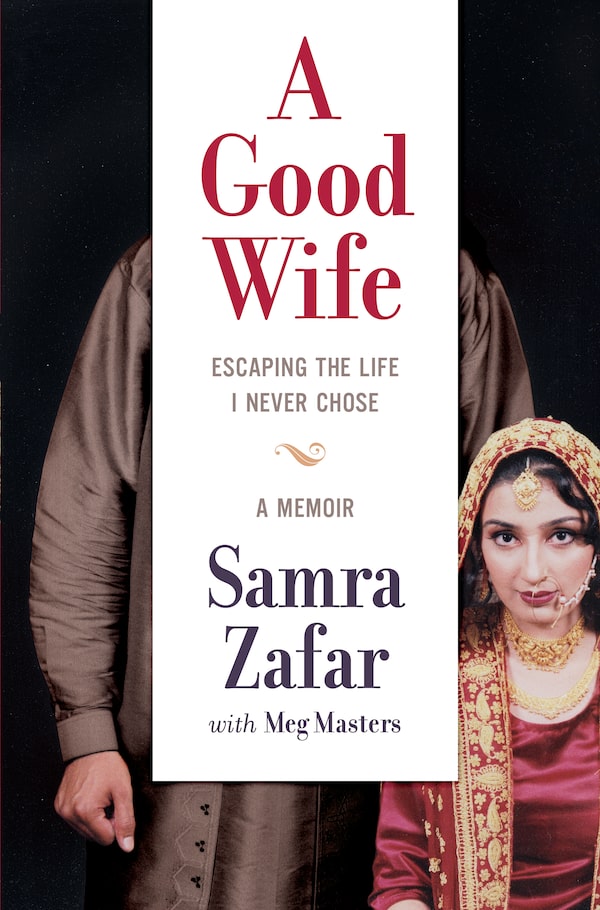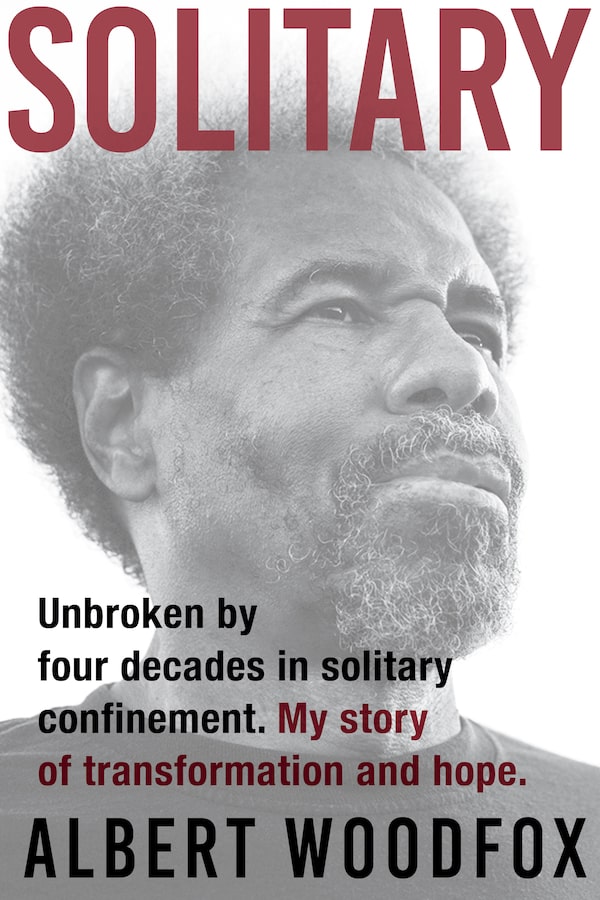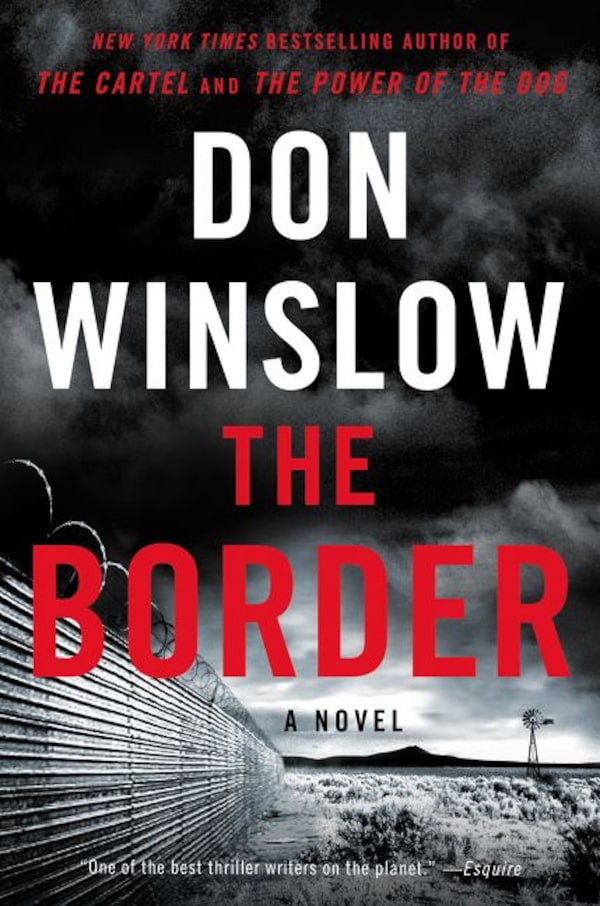Table of Contents
Memoirs

Supplied
A Good Wife
How author Samra Zafar escaped an abusive arranged marriage and found freedom
Samra Zafar rescued herself from an abusive marriage, arranged for her by her family in Pakistan, when she was 16. She married a stranger 11 years her senior and moved to join him in Canada. For 12 years, she endured abuse, living with repressive in-laws, forced to wear a hijab and restrained from pursuing a life outside the home. Winner of several scholarships, an international speaker, bank executive and one of the youngest member of University of Toronto’s Governing Council, the single mother of two teenage daughters, now at 36, is a far cry from the sad young woman she describes in her memoir, A Good Wife: Escaping the Life I Never Chose.

Supplied
Solitary
Former Black Panther Albert Woodfox captures the plight of 40 years in solitary confinement
Albert Woodfox spent more than 40 years in solitary confinement confronting all manner of predators – sex-crazed inmates, racist guards, stifling heat, wardens bent on breaking his spirit. But the feature of life in isolation that tormented him most came from inside his own head. Every day he woke up in his six-foot-by-nine-foot cell at Louisiana State Penitentiary and wondered whether this would be the day he’d lose his mind. “Will I start screaming and never stop?” he writes in Solitary, his account of the unprecedented term he spent buried in solitary. “Will I curl up into a ball and become a baby, which was an early sign of going insane? Every day I pushed insanity away. Every day I had to find strength.”
Non-fiction

Claws of the Panda
Why Canada should take a stronger approach to China
China will likely regret its response to the arrest of Huawei executive Meng Wanzhou in Vancouver last year. As veteran journalist Jonathan Manthorpe explains in his remarkable new book, Claws of the Panda: Beijing’s Campaign of Influence and Intimidation in Canada, the Chinese Communist Party has spent decades quietly infiltrating Canada in order to acquire influence over economic and political decision-making. It succeeded in conveying an image of China as a trustworthy partner rather than a demanding superpower, an image that became all the more attractive after Donald Trump was elected as President of the United States. But now, after the arbitrary detentions of Michael Spavor and Michael Kovrig – and the resentencing of Robert Schellenberg with the death penalty – Canada is in a position to reassess the risks of collaboration with China.

Supplied
Coders
Inside the minds of the people who control our digital lives
Digital technologies surround us, and unfortunately, so do digital criminals. Their motive is money, and their exploits are covered widely in the media. However, we rarely think about the legal and less high-profile digital machinations that take place while we go about using our computers. Pervasive algorithms are embedded in the technologies of work, play, commerce, learning, social media and entertainment. They are the work of people who create the software that sets out the hidden, implicit or explicit rules governing our digital existence. Given the enormous impact of digital technologies, we should pay more attention to these people and the way they shape our day-to-day realities. Journalist Clive Thompson’s lucid yet breezy new book – Coders: The Making of a New Tribe and the Remaking of the World – is a great way to learn. Thompson examines who the coders are, their culture and what makes them tick.

Supplied
Empty Planet
An enlightening guide to the contemporary world of fertility
John Ibbitson (a Globe and Mail political columnist) and Darrell Bricker (a pollster and public-affairs commentator) have written a sparkling and enlightening guide to the contemporary world of fertility as small family sizes and plunging rates of child-bearing go global. Although Empty Planet: The Shock of Global Population Decline does not tell us anything hugely new – similar ground was covered by Ben Wattenberg 15 years ago (Fewer) and Fred Pearce nearly a decade ago (Peoplequake) – this is one of the biggest stories shaping our futures and it is moving so fast that it is high time for an update. The writers offer a bracing overview of demographic history and then focus on particular countries and issues to which they bring sharp insight, refreshingly coupled with colourful anecdote.

Supplied
In the Closet of the Vatican
An expose of gay life at the highest levels of the Catholic church
In his controversial new book, In the Closet of the Vatican, gay French journalist Frédéric Martel reports that a majority of prelates in the Vatican are gay. Many of these are celibate. Many others are sexually active. A large number of those are discreetly partnered. Others employ adult male sex workers of various kinds, with differing degrees of frequency. The exact number of queer men in the Vatican hierarchy is of course hard to pin down. But Martel insists that the number constitutes a majority, and may be as high as 80 per cent. The research is damning because it’s credible. Martel researched his book full-time for four years. His 1,500 interviews included conversations with 42 cardinals, 52 bishops or high-ranking prelates, 11 Swiss Guards and 45 Holy See diplomats, in 30 countries.

Merchants of Truth
Truth-telling about the state of modern journalism
For her survey of the modern media landscape, Merchants of Truth: The Business of News and the Fight for Facts, Jill Abramson chose to follow the model of David Halberstam’s 1979 media history, The Powers That Be, by profiling four companies. In one corner are the multi-platform, web-based upstarts, Vice and BuzzFeed; in the other are the indomitable print-based dowagers of American journalism, the New York Times and the Washington Post. (Abramson was the first woman appointed as executive editor of the Times, in 2011.) Really, though, Abramson is telling two stories. One, on a macro level, is about the head-spinning forces that have shaped journalism in the past two decades. She sets that against a Russian novel’s worth of tiny, illuminating detail. (Some of these details have been questioned by sources quoted in the book.)

The Age of Surveillance Capitalism
Four things to know about the digital danger we’re in
In 2014, Harvard academic and business columnist Shoshana Zuboff coined a term that might have seemed alarmist at the time, but now seems almost quaint: surveillance capitalism. There were already many examples of companies monetizing the massive amounts of digital data we were spewing out – through our phones and computers and transponders – and people may have noticed that it was getting a little creepy. Zuboff’s new book, The Age of Surveillance Capitalism: The Fight for a Human Future at the New Frontier of Power, argues that it was a) already much worse than we realized; b) much worse has happened since; and c) the worst is yet to come. Simply put, she calls surveillance capitalism “a rogue force driven by novel economic imperatives that disregard social norms and nullify the elemental rights associated with individual autonomy.” In other words, it’s bad for you and bad for everyone else, too.

Supplied
The Tangled Garden
Bracing reading on the failure to protect Canadian culture in the digital age
This crisp and witty survey of the construction of Canadian cultural protections in the postwar years and their decimation by digitization makes for bracing reading. Anyone who has followed these files, from the dropping number of Canadians reading Canadian books to the financial struggles of Canada’s newspapers and television broadcasters, knew things were bad, but Richard Stursberg and his co-author, Stephen Armstrong, tote them up relentlessly in The Tangled Garden: A Canadian Cultural Manifesto for the Digital Age. Canada is losing millions of dollars and thousands of jobs to Silicon Valley while perversely forcing regulated and taxed Canadian cultural industries to compete with the FAANGs – Facebook, Apple, Amazon, Netflix and Google – who aren’t covered by Canadian-content regulations and, for the most part, pay no corporate taxes here.

Zucked
Inside Facebook’s disruption of democracy
Read an excerpt from Roger McNamee’s Zucked: Waking up to the Facebook Catastrophe. “This book is the story of why I became convinced, in spite of myself, that even though Facebook provided a compelling experience for most of its users, it was terrible for America and needed to change or be changed, and what I have tried to do about it. My hope is that the narrative of my own conversion experience will help others understand the threat. Along the way, I will share what I know about the technology that enables internet platforms like Facebook to manipulate attention. I will explain how bad actors exploit the design of Facebook and other platforms to harm and even kill innocent people. How democracy has been undermined because of design choices and business decisions by internet platforms that deny responsibility for the consequences of their actions.”
Fiction

Supplied
The Border
A harrowing, horrific read that hits Peak Page-Turner
Don Winslow’s The Border is a massive novel – not just in size at 736 pages, but in scope. Thanks to Winslow’s affinity for hard-boiled staccato sentences, blunt but powerful turns of phrase and an insatiable need to push through narrative as if setting a world land-speed record, all the reader can do is attempt to grip his prose and pray they don’t let go. One of Winslow’s best tricks with The Border is how it acts as both the capper to a trilogy and a standalone work. If you have yet to read 2005’s The Power of the Dog and 2015’s The Cartel, that’s fine (though you should read The Cartel, Winslow’s best book). Each novel centres on the Jack Ryan-esque hero Art Keller, a Drug Enforcement Administration operative who plays by his own rules and is constantly shown to be smarter, quicker and ultimately more ethical and moral than anyone else in the U.S. or Mexican government.

The Associated Press
Lost Children Archive
A road story for the Trump era
In Lost Children Archive, the third novel by Valeria Luiselli, a family of four ventures toward the border in Arizona from their home in New York. The narrator is a 33-year-old woman. She navigates by map. Her husband is behind the wheel. The marriage is fracturing. Their children, a five-year-old girl and 10-year-old boy, are in the backseat. The husband is a sound documentarist and wants to record the echoes of the Native American tribes of the Apache in the desert. The wife is a journalist and plans to do a piece on the humanitarian crisis at the border. This is a novel for the Trump era, but Donald Trump himself, and his presidency, do not shadow this story: Lost Children Archive is set in 2014, when it was conceived, and much of the work was written before the election of the current President.

cory doctorow radicalizedSupplied
Radicalized
Stories for unsettling times
Cory Doctorow’s fiction is a form of “ripped from the headlines” science fiction and futurism. Each of the four stories in his new book, Radicalized, weld together some recent anxiety-making social trend with some form of existing or near-existent technological awfulness. Unauthorized Bread hammers the inhumane logic of proprietary tech with a story of algorithmic discrimination that deeply warps the society of the poor and marginalized (particularly refugees and asylum seekers). Model Minority imagines what would happen if a superhero took a stand against police violence and state surveillance. Radicalized imagines the U.S. health-insurance system ginning up suicide bombers. The final story, The Masque of the Red Death, reimagines the classic Poe tale through the eyes of a 1-per-center hedge-fund bro who finds his six sigma mind is no match for the end of organized society. In many ways, it’s a fitting product of our unsettling times.
Margaret Atwood is the first host of the Globe Book Club. To join the conversation, go to tgam.ca/bookclub, and sign up for our weekly Books newsletter.



